Abstract
Two studies are reported are reported in which severely head-injured patients were followed up and Verbal (VIQ) and Performance (PIQ) IQs obtained on the Wechsler Adult Intelligence Scale at four intervals after injury. In the first study 51 patients were systematically followed, and results were based upon serial testing. In the second study results were based on the earliest data available from an additional 98 patients who had not been followed so systematically, in order to introduce a control for the effects of practice. Patients in both studies were categorised into four groups of the severity of head injury based upon duration of post-traumatic amnesia (PTA). In both studies, VIQ level was found to be related to PTA duration at three months after injury, while PIQ was related to PTA duration at both three and six months. No such relationships were found at 12 and 30 months after injury. Results are discussed in the context of previous studies relating the outcome of head injury to the duration of PTA.
Full text
PDF
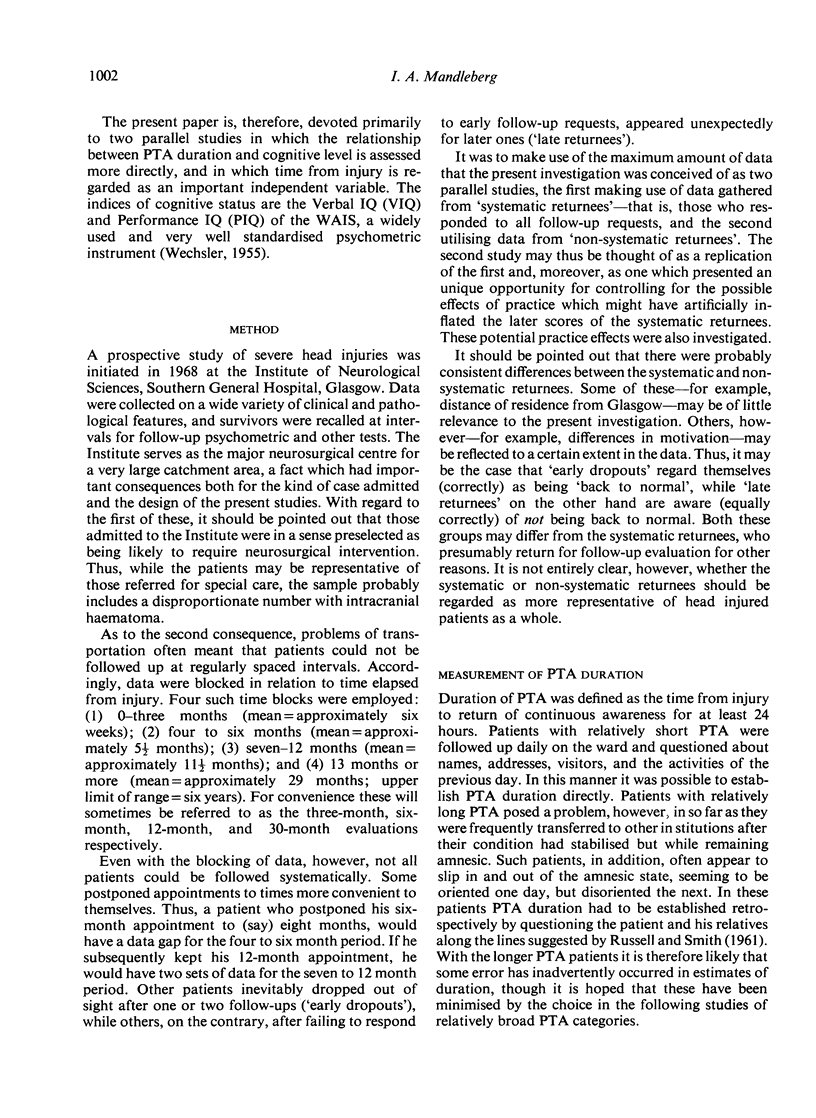
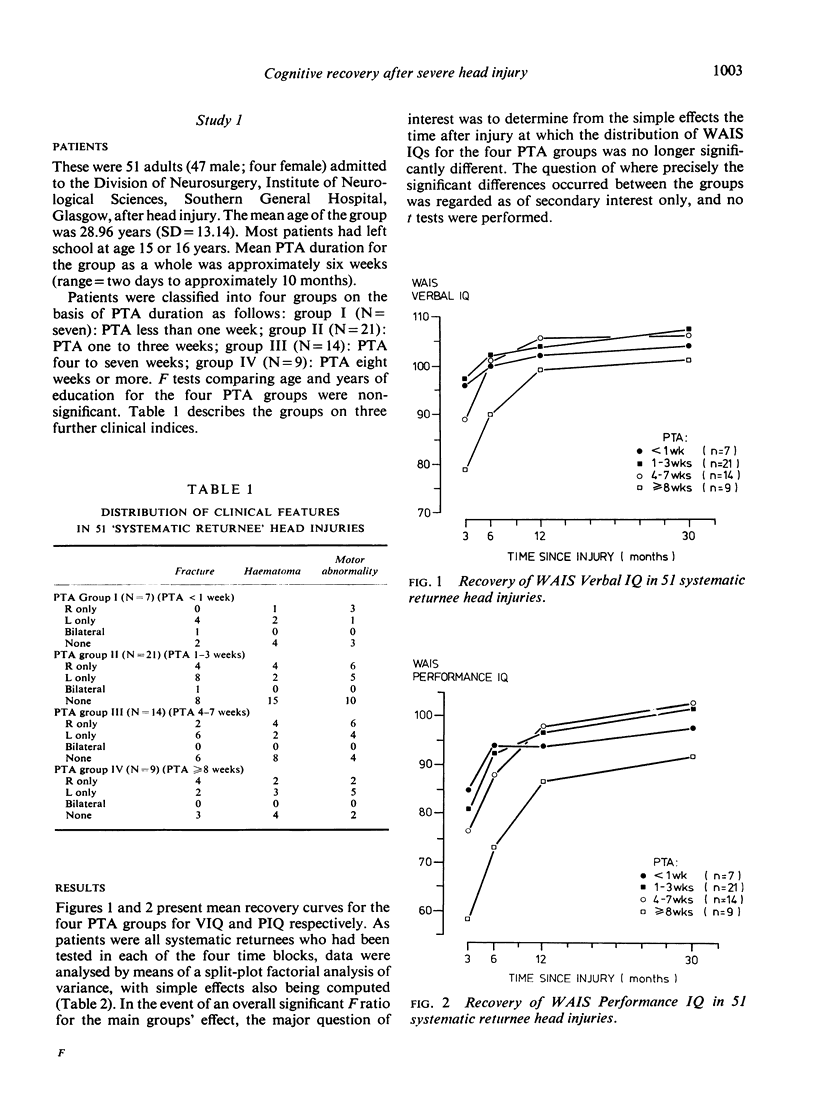
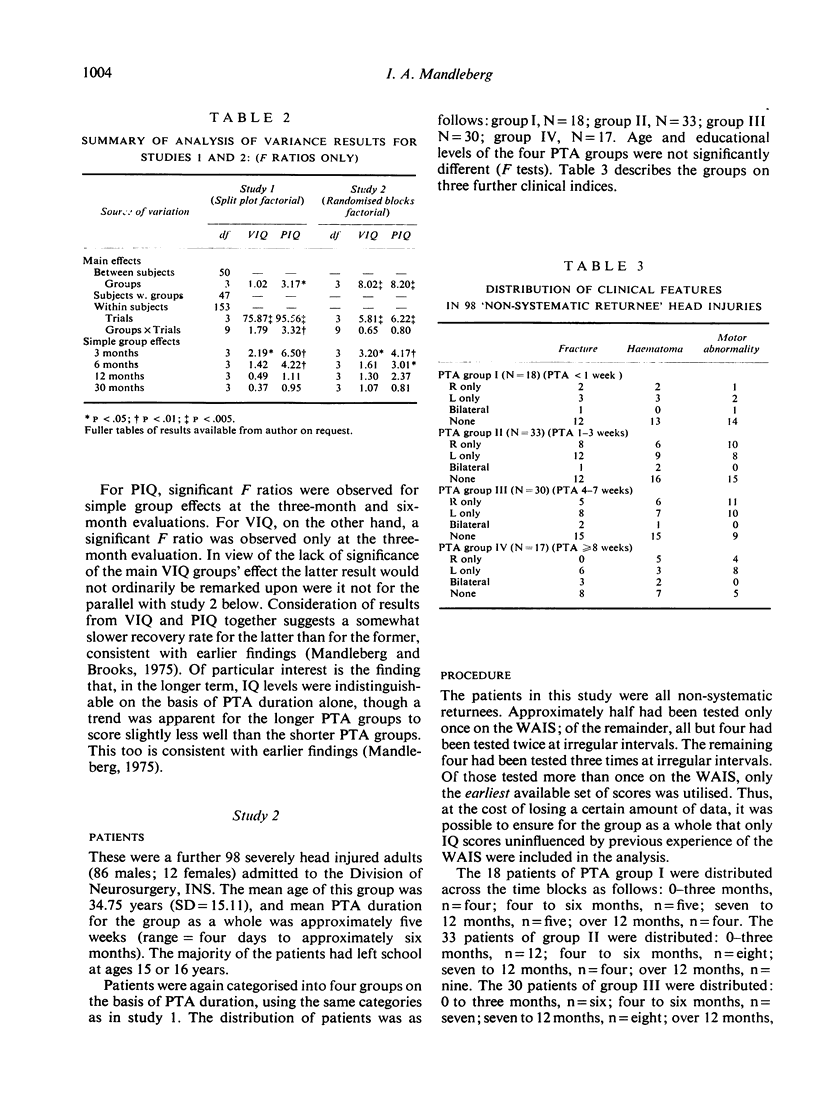
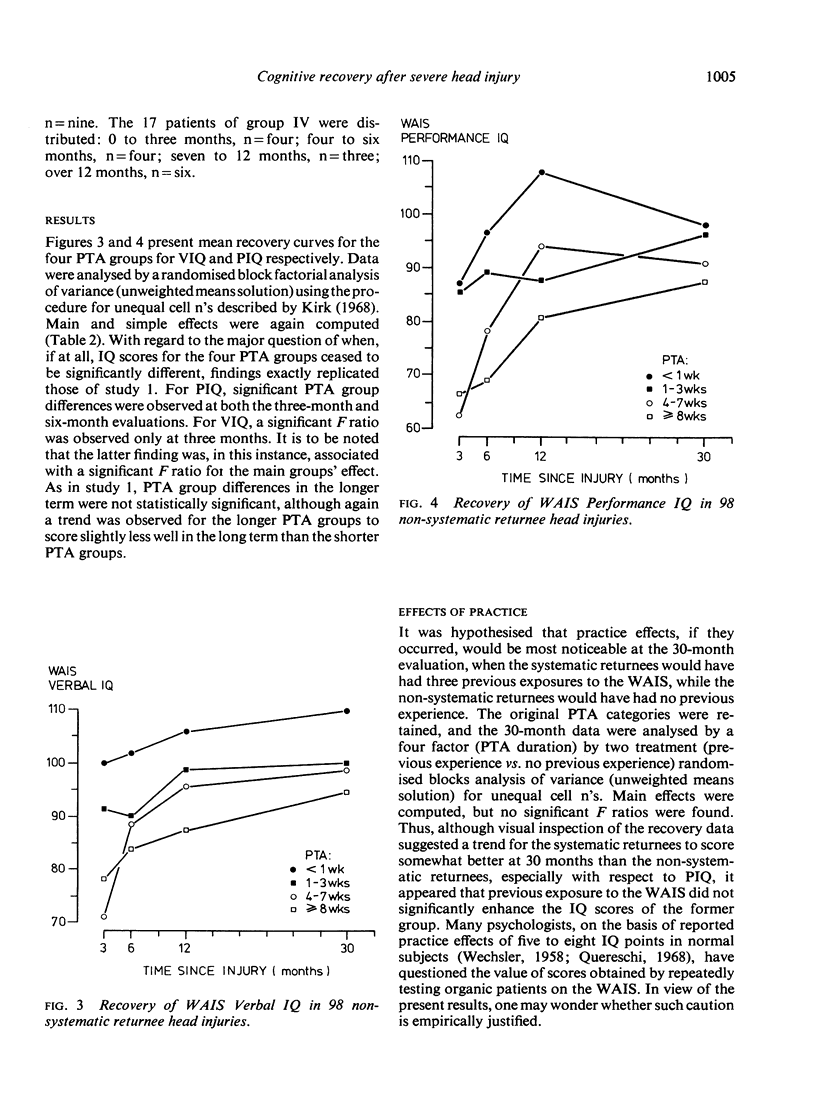
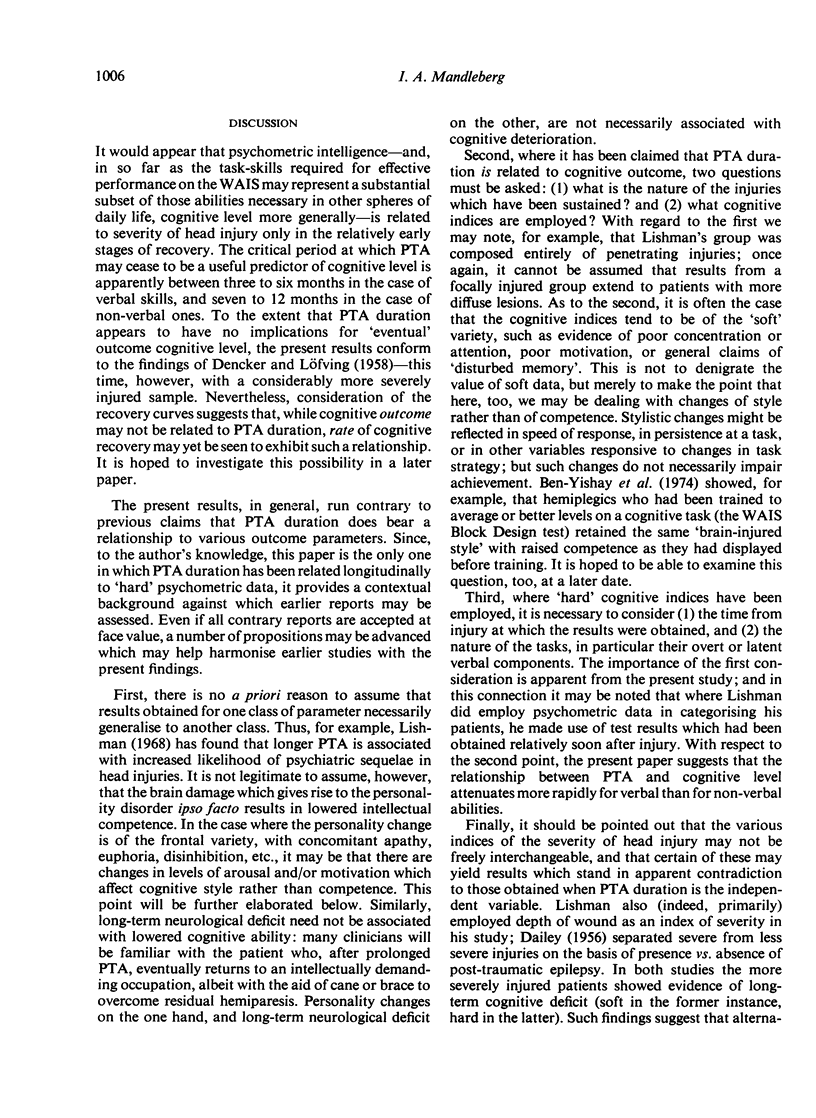
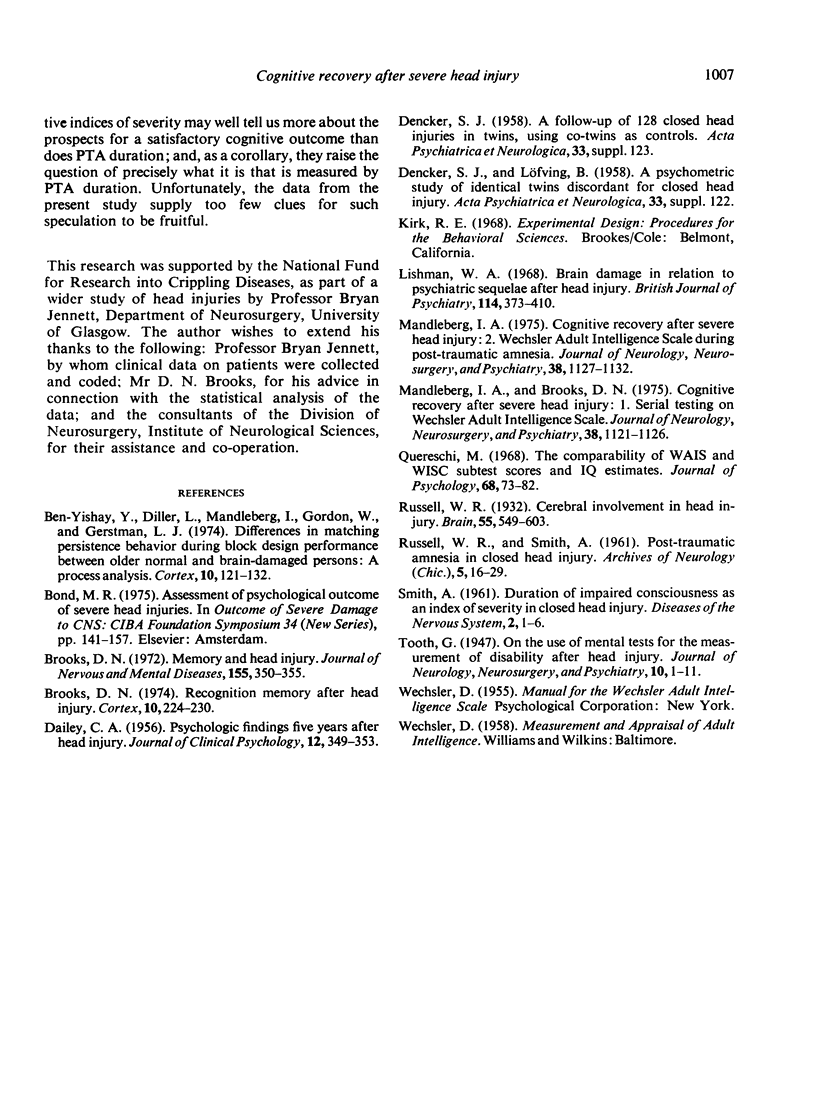
Selected References
These references are in PubMed. This may not be the complete list of references from this article.
- Ben-Yishay Y., Diller L., Mandleberg I., Gordon W., Gerstman L. J. Differences in matching persistence behavior during block design performance between older normal and brain-damaged persons: a process analysis. Cortex. 1974 Jun;10(2):121–132. doi: 10.1016/s0010-9452(74)80003-1. [DOI] [PubMed] [Google Scholar]
- Bond M. R. Assessment of the psychosocial outcome after severe head injury. Ciba Found Symp. 1975;(34):141–157. doi: 10.1002/9780470720165.ch9. [DOI] [PubMed] [Google Scholar]
- Brooks D. N. Memory and head injury. J Nerv Ment Dis. 1972 Nov;155(5):350–355. doi: 10.1097/00005053-197211000-00007. [DOI] [PubMed] [Google Scholar]
- Brooks D. N. Recognition memory after head injury: a signal detection analysis. Cortex. 1974 Sep;10(3):224–230. doi: 10.1016/s0010-9452(74)80014-6. [DOI] [PubMed] [Google Scholar]
- DAILEY C. A. Psychologic findings five years after head injury. J Clin Psychol. 1956 Oct;12(4):349–353. doi: 10.1002/1097-4679(195610)12:4<349::aid-jclp2270120410>3.0.co;2-l. [DOI] [PubMed] [Google Scholar]
- Lishman W. A. Brain damage in relation to psychiatric disability after head injury. Br J Psychiatry. 1968 Apr;114(509):373–410. doi: 10.1192/bjp.114.509.373. [DOI] [PubMed] [Google Scholar]
- Mandleberg I. A., Brooks D. N. Cognitive recovery after severe head injury. 1. Serial testing on the Wechsler Adult Intelligence Scale. J Neurol Neurosurg Psychiatry. 1975 Nov;38(11):1121–1126. doi: 10.1136/jnnp.38.11.1121. [DOI] [PMC free article] [PubMed] [Google Scholar]
- Mandleberg I. A. Cognitive recovery after severe head injury. 2. Wechsler Adult Intelligence Scale during post-traumatic amnesia. J Neurol Neurosurg Psychiatry. 1975 Nov;38(11):1127–1132. doi: 10.1136/jnnp.38.11.1127. [DOI] [PMC free article] [PubMed] [Google Scholar]
- Quereshi M. Y. The comparability of WAIS and WISC subtest scores and IQ estimates. J Psychol. 1968 Jan;68(1):73–82. doi: 10.1080/00223980.1968.10544131. [DOI] [PubMed] [Google Scholar]


